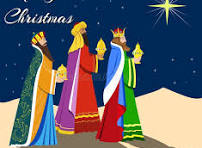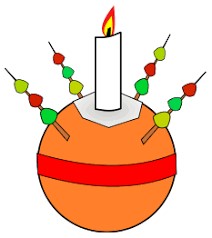The Questions the Bible Asks of Us.

This reflection is in part an adaption of a sermon by Rev Dr Sam Wells.
This morning I want to talk about a way of reading the Bible and understanding faith, and in my use of this text from the Hebrew Bible (I Samuel 8:4-20) I am drawing on the work of the theologian Sam Wells.[i]This is the way of reading and understanding faith that does not give answers, absolutes, or assurances.
In a recent Guardian article,[ii]Lamorna Ash, a journalist describes her quest for Christian faith, her retreat on Iona, and her experience of the numinous. At the end of the article she says, “I still don’t think I could tell you anything definitive and absolute about the Christian faith, nor my ownrelationship with it – but what a trip it has been. I haven’t found any answers. I’ll go on looking.”
How profoundly different this is to so many versions of Christianity, and conversions, where simple answers, certainty about those answers, and a passionate desire that others accept those answers predominate.
Let’s turn to the 1 Samuel text. After Moses crossed the Red Sea and the Israelites wandered in the wilderness, Joshua led them into the Promised Land and defeated many of the peoples who lived there. What followed was the period of the Judges, where the twelve tribes settled the land and from time to time faced an external threat, whereupon their God raised up a leader, known as a judge, whose strength or leadership or wisdom saved the people. In today’s reading from First Samuel, the elders come and say to Samuel, the last of the judges, ‘We can’t go on like this. Raising up leaders is too fragile, and a hereditary system isn’t working. We need a king.’
Samuel prays. He receives a fascinating answer from his God. In effect the deity says ,‘Listen to these elders. Don’t refuse them. But make sure they know exactly what they’re letting themselves in for.’ So that’s what Samuel does. He says, ‘This is what a king will do. He’ll take your sons to be warriors, he’ll take your daughters to be housekeepers, he’ll take your property for his entourage, he’ll take a tenth of your produce in tax, he’ll take, take, take, take, take, take.’
Then Samuel reaches the climax of his warning. Five words you’d expect to shake the elders to their bones: ‘You shall be his slaves.’ Everything in the mythic memory of Israel – leaving Egypt, crossing the Red Sea, being given the Ten Commandments, entering the Promised Land – every single thing has been about freedom, about being delivered from slavery. And now here are the elders proposing a course of action that will reverse that history and take Israel back into bondage. They’d escaped Pharaoh – and now they’re creating a Pharaoh of their own. Samuel’s saying, ‘You must be out of your mind.’
But the elders aren’t deterred. They insist on a king. Why? Because they demand to be ‘like other nations.’ And Samuel in effect responds, ‘This is the whole point: you’re not supposed to be like other nations!’ But having exposed the real issue, Samuel doesn’t insist on his own way. He’s listened to the elders and warned them, as God instructed; now he gives them their heads. He goes ahead and anoints Saul king.
So, this is a text that raises questions rather than offers answers. To use it to support monarchy or republicanism or any form of government misses the point.
There are five guidelines to bear in mind when reading the Hebrew Bible. Firstly, it was written backwards. Israel found itself in exile in Babylon in the sixth century BCE. It wrote the majority of the Bible as it came to terms with its catastrophic loss of identity, shorn of land, king and temple. So a story like today’s reading is part of that backward glance, rooted in a corporate attempt to find meaning and purpose amidst disaster.
Secondly, the central question the Hebrew Bible’s asking is, ‘What went wrong? After highpoints in Abraham, Moses, and David, how did Israel so comprehensively fall from grace?’ It’s not hard to see the debate over having a king as part of Israel’s soul-searching about whether it was walking in God’s ways or straying from them.
Guideline three: somehow God is still faithful to Israel even in exile and even through Israel’s failures. In I Samuel 8 this God discourages, warns, sets out consequences, but finally lets Israel go its own way.
Guideline four: Every story in the Hebrew Bible is an argument. You can delineate most of the material in the Old Testament by which theory it’s advocating about who God is, what Israel’s called to be, and what went wrong.
Lastly, guideline five: the Hebrew Bible, what we usually call the Old Testament, is a constant debate about all the unresolved issues in Israel’s identity, story, faith, worship, discernment, and hope. In this case, one reason why kingship isn’t flatly ruled out is because the kingship produced David, and David is the great king to which all of Israel looks back – so while kingship is part of the problem, it can’t have been all bad. Maybe.
So, the Hebrew Bible is not a linear, univocal story; it’s an account of constant reappraisal, re-evaluation, and reassessment. It wasn’t written straight through, from Genesis to Malachi: it’s a collection of perspectives from different eras and a constant process of editing as each new compiler adds anew spin on events. It’s not a simple account of a vengeful judgmental God superseded by the loving God of the New Testament; it’s a lively debate about God and humankind, and almost every view expressed in the New Testament can be found in some form in the Old. Today’s passage isn’t a straight forward eyewitness version of a conversation between Samuel and the elders about governing arrangements; it’s a narrative in which we witness every guideline I’ve just outlined. Today’s passage, like so many, is a profound wrestling with who God is, what God wants, how we respond, and what happens when we get it wrong.
+++++++++++++++
The story from I Samuel 8, a microcosm of the Old Testament as a whole, also offers us six questions for our time too. If we have a decision to make, or are looking for discernment in a relationship, in work, in an election, or as we face our mortality, pondering these six questions may help us.
I’m going to imagine we’re one of the elders bringing a proposal, and Samuel’s talking to us.
His first question is: Where are we coming from? Samuel tells us a story about our past. He’s saying, ‘Have you forgotten who you are – whose you are?’ In effect what he’s saying is, we’re embedded creatures, located in narratives about freedom, wisdom, discovery, truth. What is our whakapapa? What stories shape us?
Samuel’s second question is: Where are we going? Samuel outlines a story about our future. He describes a future that looks uncomfortably like one where we’ve learned nothing from our past. He calls us to an honest appraisal of what’ll happen if we pursue this course.
The next two questions put the story in the context of the nature of God. Question three: Who is God? Samuel’s pointing out to the elders that their plan presupposes a distant, uninterested, dormant God – a very different God say than that of Jesus (in our second reading today), concerned about intimacy, suffering, and communities of hope. Every decision we make reveals who we believe God is. And that leads naturally to where Samuel’s directing the conversation, which is how we are to shape our life in the light of who we’ve discovered God is.
Question four: Given who God is, who are we? Is/has our faith transformed our identity?
The last two questions narrow down to the specifics of the debate between Samuel and the elders. In the end it revolves around three crucial words: ‘like other nations.’ This the epicentre of the argument. On the one hand Israel is indeed like other nations: it must organise its life, maximise its resources, protect itself against threats, of weather, internal strife and hostile neighbours, and establish appropriate leadership to oversee all these things. On the other hand, Israel’s different from other nations: it’s been liberated by God to live in covenant relationship by which God will give it flourishing life and it will in return be a place and community of justice, love, and hope. As for Israel, so for us.
So here are Samuel’s last two questions: In which ways are we like others, and must simply face and respond to the realities everyone must address? And in which ways has God given us a unique vocation, to be what only we can be, to sing a song only we can sing?
Let’s ponder those six questions for a moment. Where are we coming from? Where are we going? Who is God? Given who God is, who are we? How are we like others? How are we living our unique vocation? These are the six questions that shape the Old Testament, and I would argue provide the context for the New Testament. These are the six questions that frame our lives today, especially when we face a crossroads, personally, as a church, or as a nation. When we read the Hebrew Bible, we recall we’re in good company. Israel had the same six questions we have.
The Bible isn’t a book of answers, absolutes, or assurances. But it does open us, if we let it, to a lifelong series of good probing questions.
To see our second reading (Luke 16:19-25) as a commentary on life after death, judgement, and the existence of hell, not only misses the point, but is deliberate obfuscation. Rather, when we bring these six questions to the text we come face-to-face with the widening gap between wealth and poverty in Aotearoa, we ask where this divide is leading us as a nation, what is our Christian/church vision, what (given the priorities of our God/our kaupapa as Christians) should be our response as communities of faith and hope, and how do we begin and continue to make a difference?
Such questions and where they lead us are the basis of faith.
[i] I have drawn heavily on a recent sermon by Rev Dr Sam Wells of St Martins in the Fields, London.
[ii]https://www.theguardian.com/books/2025/apr/20/dont-forget-were-here-forever-a-new-generations-search-for-religion-lamorna-ash?CMP=share_btn_url




